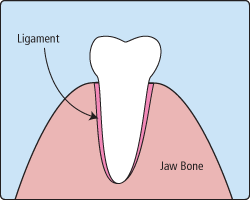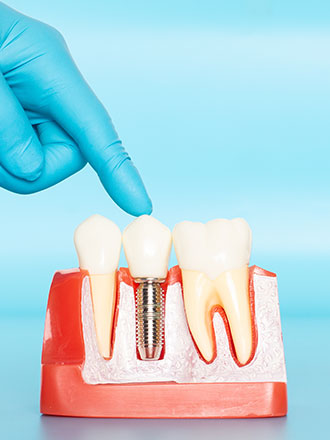Implants and Extractions
Oral surgery is to correct a wide spectrum of diseases, injuries, and defects in the head, neck, face, jaws and the hard and soft tissues of the oral and maxillofacial region.
Implants
Dental implants are long-term solutions for missing teeth, providing stability, durability, and a natural appearance. Your oral and maxillofacial surgeon surgically places dental implants in Vancouver BC into the jawbone, where they fuse through a process called osseointegration. This integration prevents bone loss and ensures a strong foundation for replacement teeth. Unlike traditional dentures, dental implants do not slip, allowing patients to eat, speak, and smile with confidence.
Extractions

There are situations where removing a tooth is the best course of action. A baby tooth with long roots may need extraction to make way for permanent teeth, or a severely decayed tooth may put surrounding teeth and the jaw at risk. In such cases, your doctor may recommend a tooth extraction followed by replacement options like bridges or dental implants in Vancouver BC for optimal oral health.
When it is determined that a tooth needs to be removed, your dentist may extract the tooth during a regular checkup or may schedule another visit for this procedure. The root of each tooth is encased within your jawbone in a "tooth socket," and your tooth is held in that socket by a ligament. In order to extract a tooth, your dentist must expand the socket and separate the tooth from the ligament holding it in place. While this procedure is typically very quick, it is important to share with your doctor any concerns or preferences for sedation.
Once a tooth has been removed, neighboring teeth may shift, causing problems with chewing or with your jaw joint function. To avoid these complications, your dentist may recommend that you replace the extracted tooth.
Wisdom teeth
Wisdom teeth are the last set of teeth to develop. Sometimes they emerge from the gum line, and the jaw is large enough to allow room for them, but more often than not, they fail to emerge and become impacted. When a wisdom tooth is impacted, it may need to be removed. Impacted wisdom teeth that are partially or fully erupted tend to be quite difficult to clean and are susceptible to tooth decay, recurring infections and even gum disease. The American Association of Oral and Maxillofacial Surgeons strongly recommends that wisdom teeth be removed by the time the patient is a young adult in order to prevent future problems and to ensure optimal healing.


